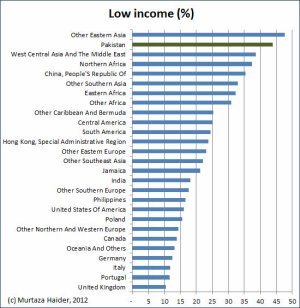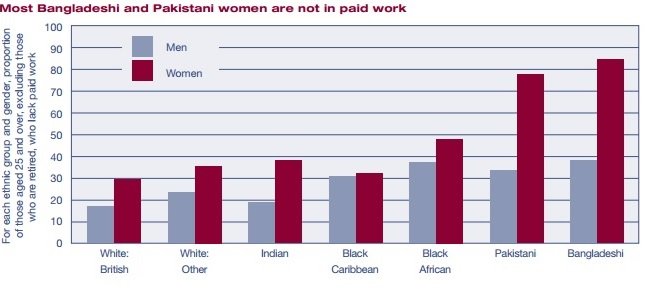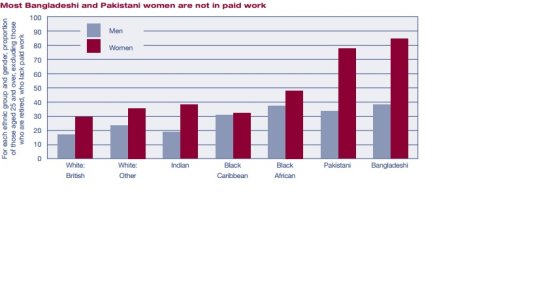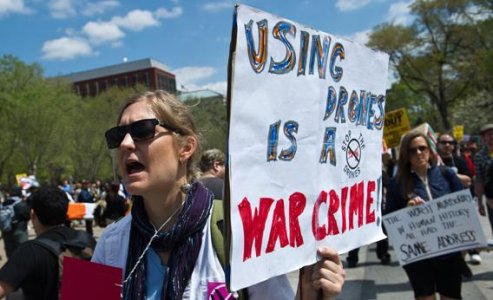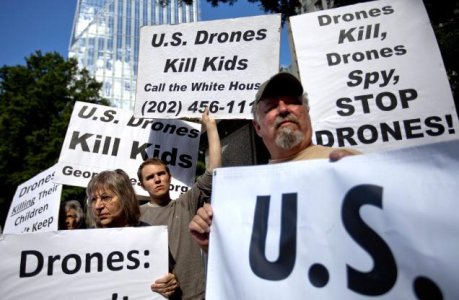How affluent are the Pakistani-Americans?
Michael Kugelman | 24th May, 2012 199
– Illustration by Eefa Khalid/Dawn.com
Last week, I read Dr Murtaza Haider’s post on the poverty of Pakistani-Canadians with great interest.
As I was barraged by one startling statistic after the other – 44 per cent below the poverty line, nearly 50 per cent who don’t own homes, almost a quarter never having been in the workforce – I couldn’t help but think how drastically different this story was from that of Pakistani-Americans, who are generally regarded as a well-off diaspora.
Indeed, I know of no low-income area or slum in the United States populated predominantly by people of Pakistani origin, and I have never heard of a Pakistani-American homeless person. When one thinks of this community, the words most often coming to mind are prosperous and philanthropic.
Evidence gives credence to these perceptions. According to a 2011 report by the Asian American Center for Advancing Justice (AACAJ), which draws on data from the 2010 US Census and other US government sources, the median household income of Pakistani-American families is nearly $63,000. This is considerably higher than the figure for families in America on the whole ($51,369). Additionally, as I have pointed out previously, the most common jobs of Pakistani-Americans include doctors, accountants, and financial analysts, and 55 per cent hold at least a bachelor’s degree (this latter figure is only 28 per cent across the US population on the whole).
Broadly speaking, Pakistani-Americans appear to be economically secure and their positive experiences likely compel them to invite friends and family back in Pakistan to join them in America. Consider that Pakistani-Americans are the second-fastest-growing Asian-American ethnic group – their numbers more than doubled from 2000 to 2010, soaring from 204,309 to 409,163.
Yet, this isn’t the full story.
Dig a bit deeper into the AACAJ report, and you will come across some troubling data. Fifteen per cent of Pakistani-Americans fall below the poverty line – which happens to be the rate for the American population on the whole. Similarly, unemployment rates for the diaspora – 8 per cent (for those aged 16 and older) –
reflect the rate for the total US population. On several measures, Pakistani-Americans are considerably worse off than the general population. Only 55 per cent own homes, compared to the nationwide figure of 66 per cent. Their per capita income is about $24,700, compared to $27,100 for the total population. And 23 per cent of Pakistani-Americans have no health insurance – which ties them with Bangladeshi-Americans for the highest percentage of any Asian-American ethnic group. This is significantly higher than the 15 per cent national figure (though Gallup polls suggest this figure has risen to 17 per cent in the last few months).
What should we make of this? On the one hand, many members of any immigrant group will face challenges as they adjust to their new home country. While quite a few Pakistani-Americans were born in the United States, the majority – about 65 per cent – were not. Therefore, for most of the community, the adjustment period is very much in the present.
Additionally, one can’t forget about all those blue-collar Pakistani-American workers, and particularly the taxicab drivers. According to US Census figures, “drivers and other transportation workers” constitute the third most common profession of Pakistani-Americans. In the words of the New York Taxi Workers Alliance, a union that represents cab drivers in New York City (where Pakistanis are heavily represented), employees have not received raises since 2004, “and they now earn below both the NY state minimum wage for a 12-hour shift and a NYC Living Wage (by 40 per cent).”
Ultimately, the most accurate depiction of Pakistani-Americans is one that dispenses with all the data and simply accepts it for what it is: a diverse diaspora that is anything but a monolith. It ranges from hourly wage workers to physicians, academics, and a growing number of state legislators and mayors; from Washington insider Huma Abedin (a close adviser to Hillary Clinton) to race-car driver Nur Ali (the first Pakistani to serve in this profession); from the eloquent writer Daniyal Mueenuddin to the notorious businessman Mansoor Ijaz; and from those who promote interfaith dialogue (American University professor Akbar Ahmed) to the occasional militant (Faisal Shahzad, the man accused of having unsuccessfully attempted to blow up Times Square).
I’m willing to bet that behind the troubling figures and snapshots that Dr Haider presents of Pakistani-Canadians, there lies a similarly nuanced and complex portrait of the diaspora in Canada – one that features its share of good news and success stories. Just as affluence is only one of various parts of the Pakistani-American story, poverty is likely only one of various aspects of the Pakistani-Canadian
http://dawn.com/2012/05/24/how-affluent-are-the-pakistani-americans/
Good article based on the stats Akher posted.
At least Brit Paks have one thing over the AMpaks in home ownership is around 70%.









